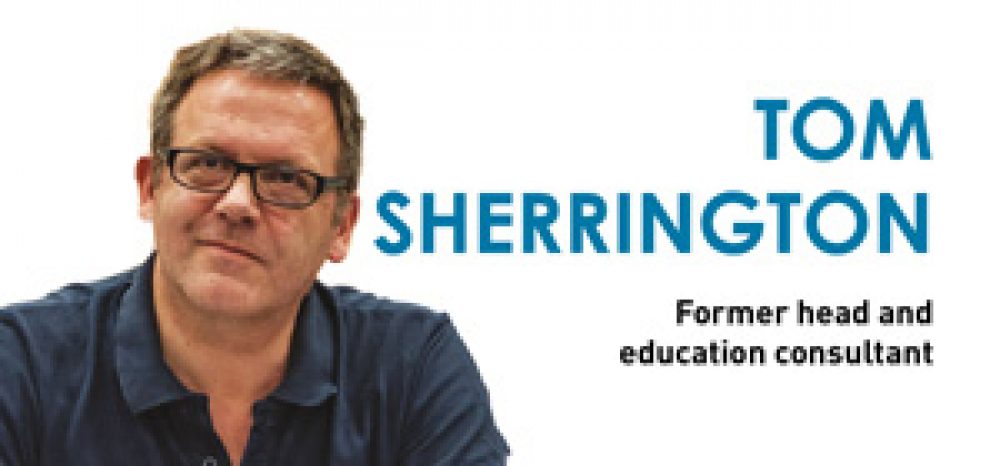Former headteacher and author Tom Sherrington delves into day two at the World Innovation Summit for Education 2017, in Doha, Qatar.
Alongside the theme of technological innovation, delegates at the WISE conference in Qatar have been exploring innovative ideas about teacher development and leadership.
As KIPP Schools’ highly quotable Mike Feinberg said during our panel discussion, teacher cultures are the ‘secret sauce’ that determine whether schools are effective. In turn, effective leadership is a ‘critical path’, assembling the ingredients, creating the conditions where optimal teacher cultures can emerge and thrive.
In essence, the role of leaders is to focus on the ways that teachers work together: their common beliefs and strategies, the nature of the opportunities they have for sharing ideas and the elements of school practice that generate positive motivation to secure teacher retention.
Discussions at WISE suggest that, around the world, this is one of the central questions driving school improvement. In contrast to the English approach driven by curriculum control and accountability measures, where incentives are rather more stick rather than carrot (to put it mildly), system leaders and researchers elsewhere are focusing on how teachers can be developed, motivated and led in the best possible ways.
Having been a huge fan of the Hargreaves-Fullan concept of professional capital, I was excited to talk to Professor Andy Hargreaves about his work with co-author Michael T O’Connor. They suggest that teachers need to move beyond ‘professional collaboration’ to what they call ‘collaborative professionalism’.
Collaboration appears to be a double-win: better and more motivated teachers
More than a neat word-switch, this is quite a significant shift. Collaboration is ‘a good thing’ in general, but it isn’t enough in itself. Teachers don’t necessarily drive up standards simply because they work together as professionals.
However, Hargreaves and O’Connor’s ten tenets of ‘collaborative professionalism’ suggest a concept with a great deal more embedded rigour. These include collective responsibility for outcomes (our students not just my students), collective initiative, collective enquiry and, my favourite, collective autonomy. This means teachers having more independence from authority but less independence from each other.
Dr Corrie Stone-Johnson from Buffalo University and UCL’s Dr Karen Edge, along with others, explore the issues around securing an effective teacher workforce in their WISE paper. They found that teacher motivation and subsequent retention is supported by several key elements.
High on the list is the opportunity for collaboration. This is not just a process for developing teacher knowledge; it’s a key motivator – a factor that can’t be underestimated. Combining this with Hargreaves’ work, collaboration appears to be a double-win: better and more motivated teachers.
Stone-Johnson suggests that other motivators include enabling teachers to feel part of wider system; fragmented systems with lots of autonomous schools risk breaking the system-to-teacher link. This resonates with my experience of the vibrancy of the online community and the atmosphere at teachmeets, researchEd events and so on.
We love feeling part of something bigger than our immediate institutions. Teachers in a range of contexts are also motivated by feeling that their continuing professional development is directly relevant to their particular needs in supporting their particular students. Generic professional learning misses the motivational mark – again, something I’m sure many of us would recognise.
The nature of professional learning was an area I discussed with Sir Kevan Collins in relation to the latest Education Endowment Fund studies into lesson study and structured teacher observation that showed no major impact. I’ll explore that discussion more fully in the interview published in next week’s report.
EEF is committed to finding strategies that work at scale in securing improved outcomes particularly for disadvantaged students. One challenge is that the metrics for student attainment in any given study are generated over a few months to a year, whereas, according to Hargreaves, the timeframe for significant change in teacher performance is over many years. We usually can’t afford to wait that long to find out if something is working and other longitudinal methods are needed.
The practicalities of delivering effective collaborative professionalism that balance short-run gains with long-term development are explored in Dr Simon Breakspear, Amelia Peterson et al on developing ‘agile leaders of learning’. One of their tools involves teacher teams in running multiple ‘learning sprints’ via a structured design-assess-review cycle over several weeks.
Breakspear’s view that longer term learning needs to be powered by shorter-run processes is interesting – and it has huge potential given the imperative to make rapid gains whilst also securing long-term teacher improvement and retentions.
Design thinking is the theme of the WISE input from Annette Diefenthaler, the education director for California-based design company IDEO. They have worked with school systems across the US, Canada and Peru to solve a range of specific issues using their design thinking methodology. A key element of this is that solutions have to be human-centred, originating with the specific challenges of the people directly involved.
This isn’t about implementing off-the-shelf solutions. Even if evidence and research are explored, Deifenthaler is clear that success requires educators on the ground to interpret and experiment, using iterative learning by doing cycles before ideas have evolved securely enough to implement.
I’ve always found the idea of teachers as designers appealing, capturing the blend of art and science, and evidence-informed innovation in a way that makes sense. Put that together with collaborative professionalism, with all the motivational outcomes that flow, and this sounds like a recipe for a highly successful system we’d all want to be part of. This comes back to Feinberg’s idea of leadership as the critical path to the secret sauce. Come on leaders – let’s get cooking!
You can check out Tom’s blog from day one of WISE 2017 here.







Your thoughts